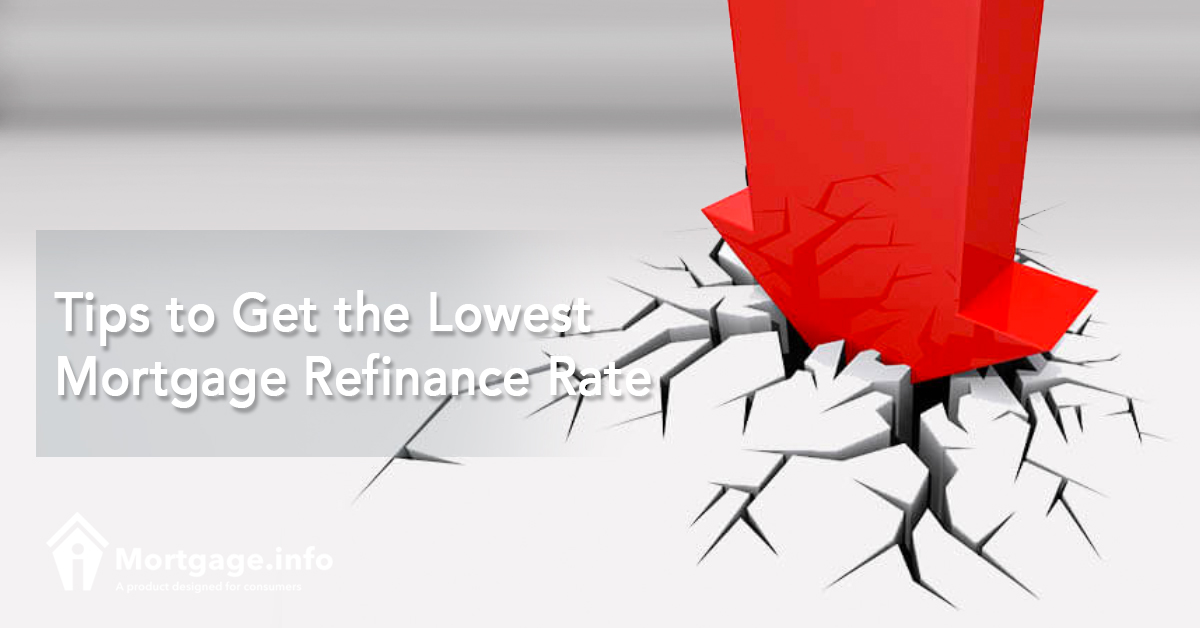The largest factor many people worry about when refinancing is the rate. It makes sense since you probably refinance so you can save money. So how do you get the lowest mortgage refinance rate? It is not an exact science. However, there are ways you can secure a lower rate. Trying one or more of these tips can help you get the rate you want.
Check Your Credit
Your credit score is one of the primary driving factors of your interest rate. The lower your score, the higher risk you pose to lenders. This means a higher interest rate. If you want to ensure a low rate, check out your credit report. Ensure everything reporting is accurate; you might be surprised to see how many errors occur on credit reports every day. You can also make changes to help your score increase. For example, if you have too many outstanding debts, pay them down before refinancing. If you have late payments, start making them on time and wait a little while for your score to improve. These simple steps can save you a significant amount of money each month.
Save Cash for Closing for the Lowest Mortgage Refinance Rate
Every time you refinance, you pay closing costs unless you take a no-closing-cost loan. However, these loans mean higher interest rates. Banks need to make money one way or the other. If they pay your closing costs for you, they make up the difference with the interest rate. If you save money and pay all of the closing costs up front, the lender may give you a lower interest rate. If you have enough money, you can even “buy the rate down.” This means you pay discount points. For every 1% of the loan amount that you pay, the lender lowers your interest rate a predetermined amount. Every lender offers different rates and discounts, so do not rely on one quote alone.
Wait Until you Have Equity
If you borrowed close to the value of the home originally, wait until you have equity in the home to refinance. If you refinance before you pay a large chunk of principal down, the lender will be less likely to lower your interest rate. This is because the higher your LTV, the higher your risk. Lenders prefer borrowers who have an investment in the home. If you wait a few years until you pay the principal down more, you stand to secure a lower rate. If you want to speed things up, start making extra payments towards the principal of your loan. You can do this by paying even just $100 per month extra. If you can afford it, though, make one extra mortgage payment per year. This can cut off thousands of dollars in interest and really cut your principal down faster.
Look at All of Your Options
You can change the term of your loan when you refinance. For example, if you have a 30-year term now, but already paid on it for 5 years, why not see what a 20-year term looks like? The shorter the mortgage term is the lower the interest is in most cases. You might be surprised to learn that the 20-year payment is not much higher than what you pay now because of the lower principal balance and lower interest rate. Ask lenders what options you have. Some only offer 15 and 30-year terms, while others offer 20 and 25-year terms. Weigh all of your options, focusing on more than the interest rate alone to decide what is right.
Do the Legwork
Shopping around is crucial to securing a low interest rate. Many people make the mistake of sticking with their current lender. Sure, they know you and may make it easier for you to secure a loan, but they may not have the best rate. When you shop around, you have leverage. If one lender provides you with a lower rate than another, you have two choices. You can negotiate with the higher lender if you prefer his services or you can use the lender with the lower rate. Either way, you know what is available out there and you can find the lowest rate available to you.
Know When to Lock Your Rate
When you lock your interest rate also plays a role in the rate you receive. The longer you lock, the higher the rate. Lenders prefer shorter locks because they do not have to ride the waves, so to speak. It is unlikely that rates will change dramatically in a short amount of time. However, when you lock for 30-days or more, the rates can change quite a bit. If they increase, the lender loses out. This is why they often protect themselves when borrowers need a longer rate lock. Your lender will likely have some advice regarding what you should do about locking your rate. If they know rates are going to change soon based on a recent economic event, they may steer you in one direction or the other. Otherwise, they may just provide you with your different options based on rates at that time.
As you can see, the lower your risk, the easier it is to get the lowest mortgage refinance rate. In a perfect world, you would have no debt, a lot of equity, great credit, and only need to lock the rate for a short period. However, this is rarely the case. If you can make one or more of these things happen, though, you may be eligible for a lower interest rate. Shopping around and negotiating with lenders is your best bet to secure the lowest rate available.

